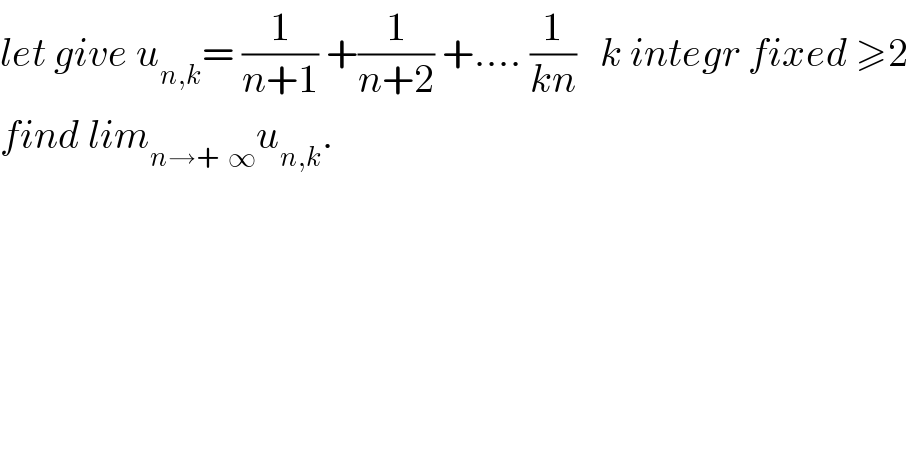
Question and Answers Forum
Question Number 28891 by abdo imad last updated on 31/Jan/18

Answered by ajfour last updated on 01/Feb/18

| ||
Question and Answers Forum | ||
Question Number 28891 by abdo imad last updated on 31/Jan/18 | ||
 | ||
Answered by ajfour last updated on 01/Feb/18 | ||
 | ||
| ||